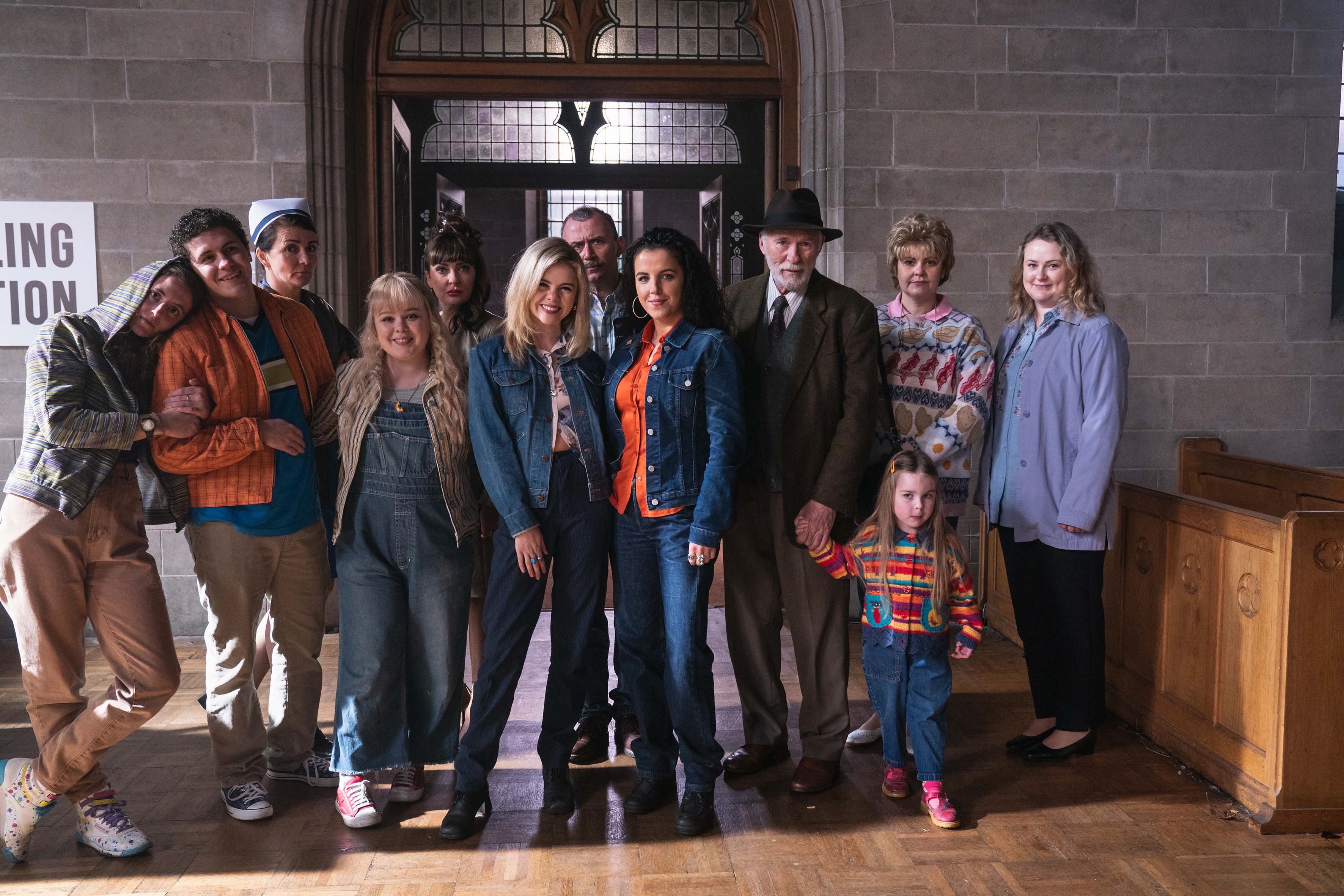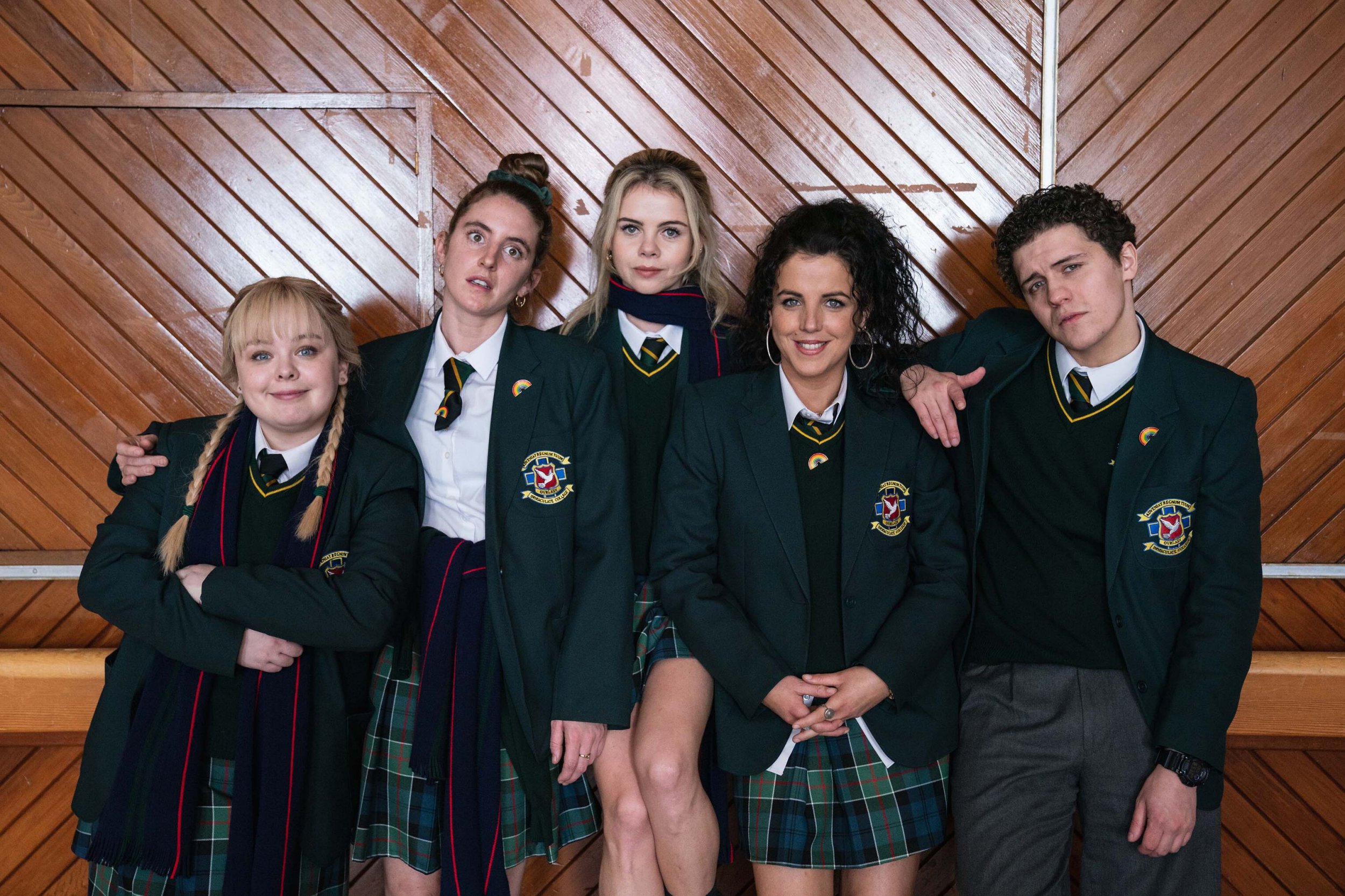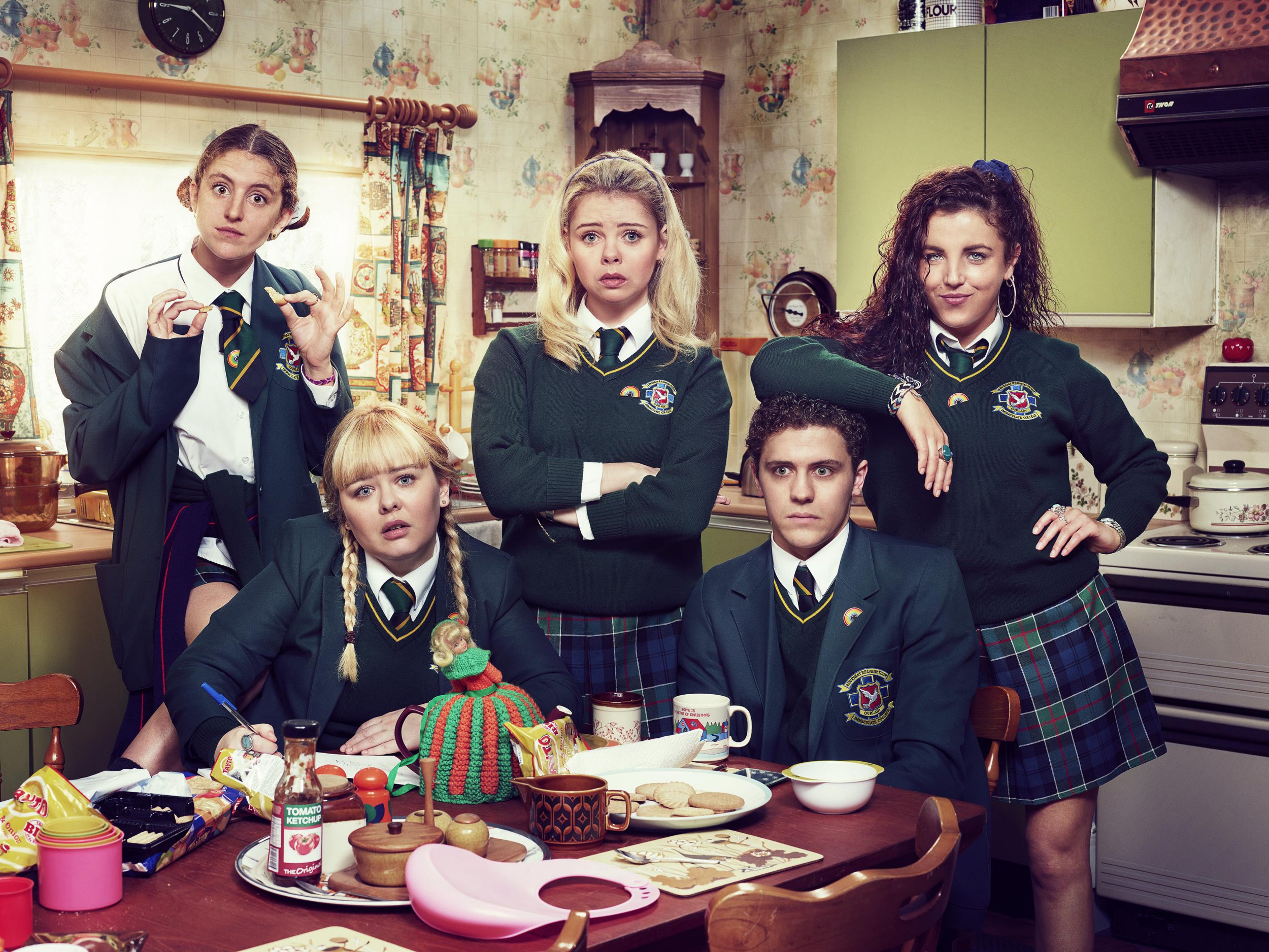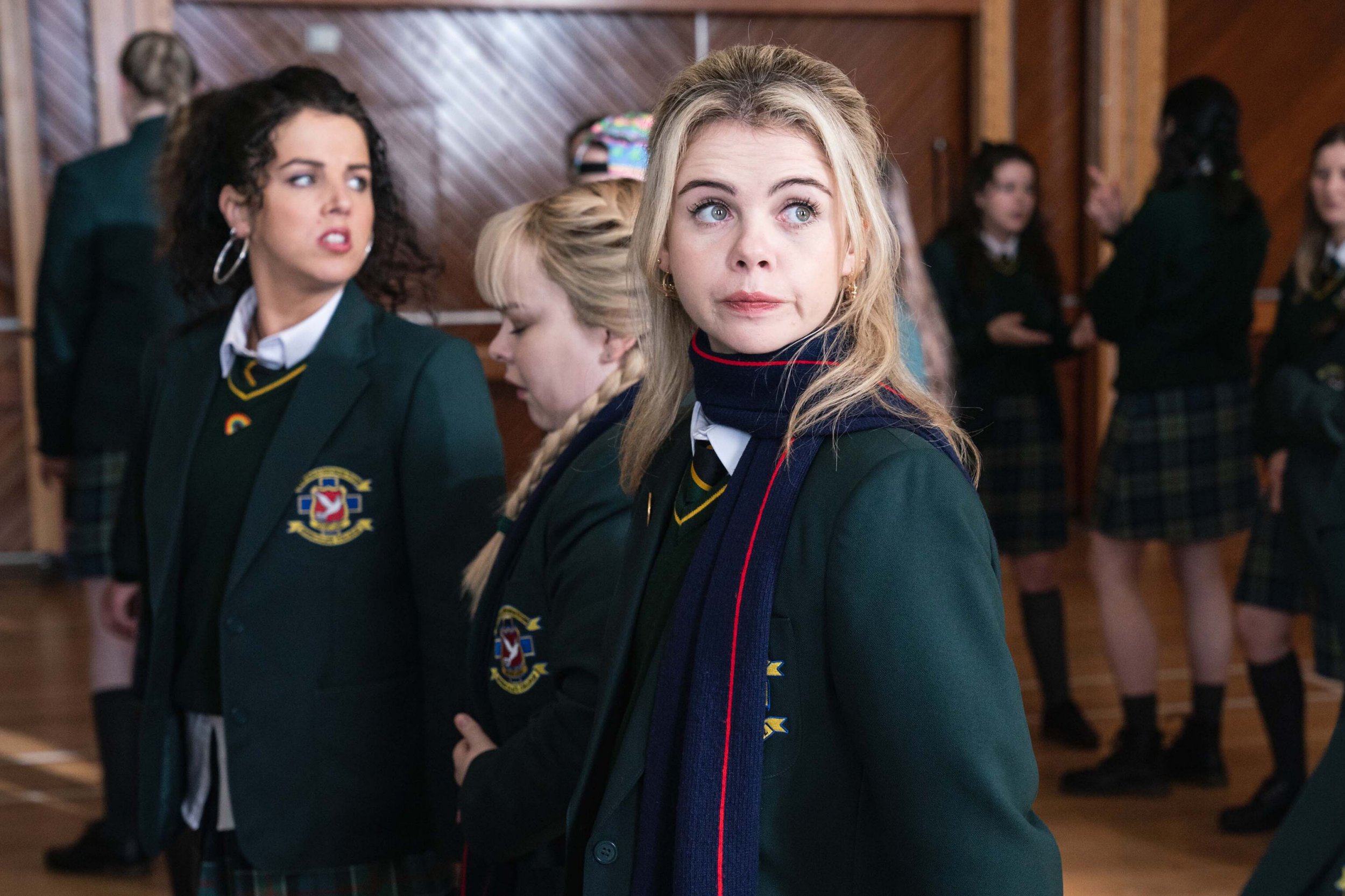
After three series and an extended special, has come to an end.
It’s been an absolutely wild ride, , l and devastating scenes, centred around the undercurrent of the Troubles.
It was a serious feat to successfully set a sitcom to the backdrop of the horrors in Northern Ireland and struggle for peace, but creator Lisa McGee never put a foot wrong.
The show has always been at its strongest when combining the insulated, selfish lives of teenagers and their personal dramas with the earth-shattering real-life atrocities of the time, with the season one finale’s dance scene still one of the biggest highlights of the series.
After series three ended with of Clare’s dad, the final scene showing the girls holding her up as she walked behind her father’s coffin, there was a notable shift: the girls were growing up; things would never be as simple for them now.
And in Wednesday’s special extended episode, set one year later, this shift was visible.

It was in the smaller things: Michelle having a job as shopkeeper Dennis’ protegée (and screaming GET OUT! perfectly), Orla getting her voting card, champagne being handed out at a party since they are all, at this point, 18.
But it was most obvious in the bigger things: the almost friendship-ending argument between Erin and Michelle about Michelle’s brother, Ryan, who it is revealed is in prison for killing a man in what it is heavily suggested was an IRA plot.
In three series, Ryan, his imprisonment and the man he killed has never been mentioned; it was a jarring scene, and seems that despite being best friends, that conversation had been too heavy for either Michelle or Erin to ever bring up.
But as adults now, and with their vote an opportunity to enact real, drastic change in Northern Ireland, it’s a conversation that needed to be had.

The final episode of Derry Girls really felt like a goodbye to the show – not least with Sister Michael, thinking she would be moved on from the school, wandering the halls in a literal goodbye to the place the girls have caused havoc for three years.
We didn’t get a solid romance from Erin and James, but we got enough to keep it open for any potential future specials, and Clare spent much of her screentime on the phone with the others, likely due to filming clashes with Bridgerton, but it felt natural enough.
There were fantastic throwbacks – we got another exhausting conversation from Uncle Colm, a return from Ardal O’Hanlon, another glimpse at Liam Neeson; Erin and James shared another moment, Clare had one last meltdown.
And it ended the way it began: A monologue from Erin, but this time one where she spoke her actual truth, set to clips of Bloody Sunday, the future apology from David Cameron, rubble and blood on the streets, but a message of optimism from an 18-year-old coming of age during the most important time in Northern Ireland’s history.
One of the final scenes sees the Derry Girls and their parents walking out together after having cast their vote in favour of Good Friday Agreement; exiting last, hand-in-hand, is Granda Joe and Erin’s little sister, Anna, two completely different generations with Anna’s future in Derry set to be incomparable to Joe’s.
It would have been the perfect ending to a pretty much perfect series, but Lisa had one more trick up her sleeve.
In modern-day New York, Chelsea Clinton, daughter of Bill Clinton, receives a letter in the post sent 30 years prior.

From Erin, Clare, James, Orla and Michelle, it invites her to hang out with them when her parents – Bill and Hilary Clinton – visit Northern Ireland to promote the peace process.
An absolute breathtaking cameo and a roundup of everything Derry Girls stands for – teenagers living their normal lives as a conflict rages around them, and a story taken directly from Lisa’s own life: she had written to Chelsea inviting her to the cinema during the Clinton’s real-life visit in 1995.
Lisa managed to wrap up a phenomenal show with the humour and integrity it deserved; there’ll have been more than a few tears shed by the time the episode is over, and fans will genuinely mourn the loss of some of the best-written, unique and lovable characters found in any recent sitcom.
Derry Girls has rightly earned its status as a modern classic – it’s hard to imagine any show capable of filling the hole left in its absence.




















